Paris’s riverside booksellers have had to be tough to make it through the 500+ years they’ve been in business. Kings censored or outlawed them multiple times and wars shut them down. They’ve always come back to set up their green-metal stalls along the Seine.
The pandemic, though, has hit the bouquinistes hard. With foreign tourists banned from Europe, most of their revenue has dried up. The proprietors are getting government aid, but not nearly enough to make up the difference.
On both the Left and Right banks, only a minority of the stalls are open, even on weekends and even as spring arrives in Paris. Few people stroll by, and the ones who do rarely stop.
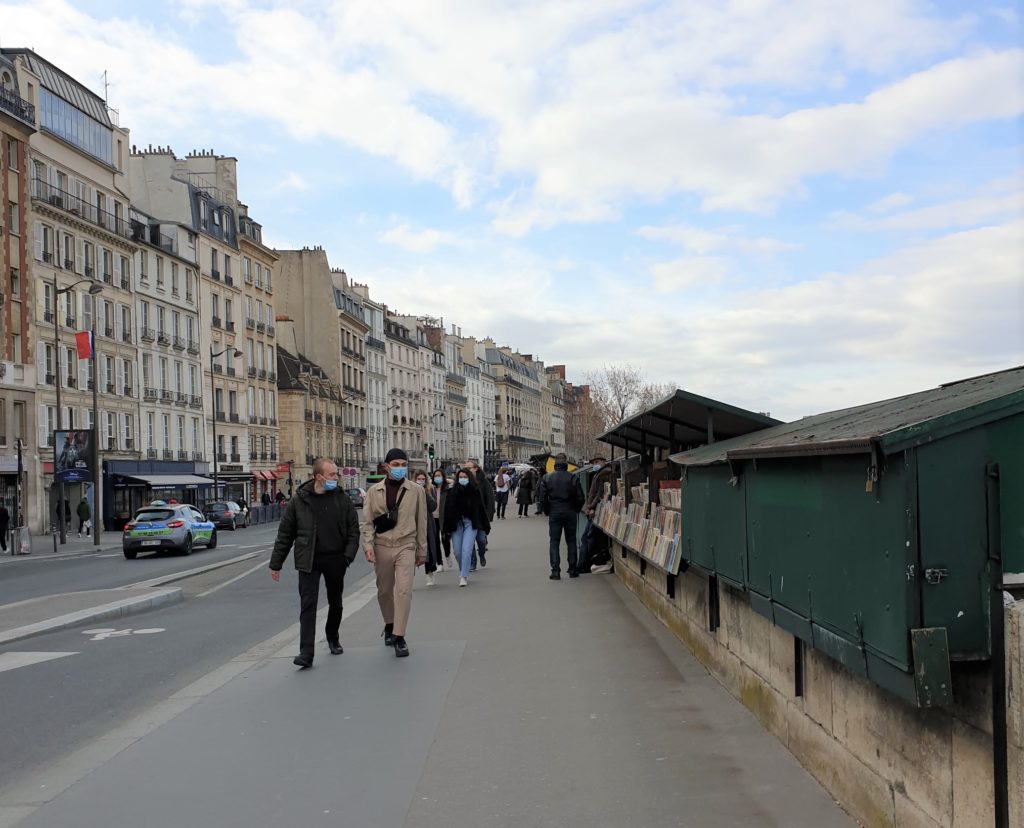
I confess that in my 25 years in Paris I never paid much attention to the bouquinistes. They were kitschy and a little dreary, I would think while passing them on my way to some cool 5th arrondissement restaurant. Only on a couple of recent weekend visits did I actually look at what they had to offer. Vinyl records, for instance, and postcards from as long as 100 years ago. Old magazine covers, sports posters and every kind of old, used book you can imagine.
It was clear from talking to the proprietors how much they enjoyed their work. One of them said he could have survived on the rental income from a little studio apartment he owned, but he wanted to be at his stall near the Pont Neuf because he liked meeting and talking to people. Another had had various jobs over 30 years, including in industrial design, but said this was the first profession he’d really enjoyed.
His name is Jacques, or at least that’s what we’ll call him. Bouquinistes are famously reluctant to give their names or, in some cases, to have their photos taken. Buying something, or even seriously shopping, helps with this.
On his stall, Jacques displays a sign that says Mask Wearing is Forbidden. It’s a rare sentiment in France, where people generally wear masks, albeit a little loosely at times.
“I always do the opposite of what they tell me,” Jacques said. “Besides, the rules change constantly.” That’s certainly true; more on that later.
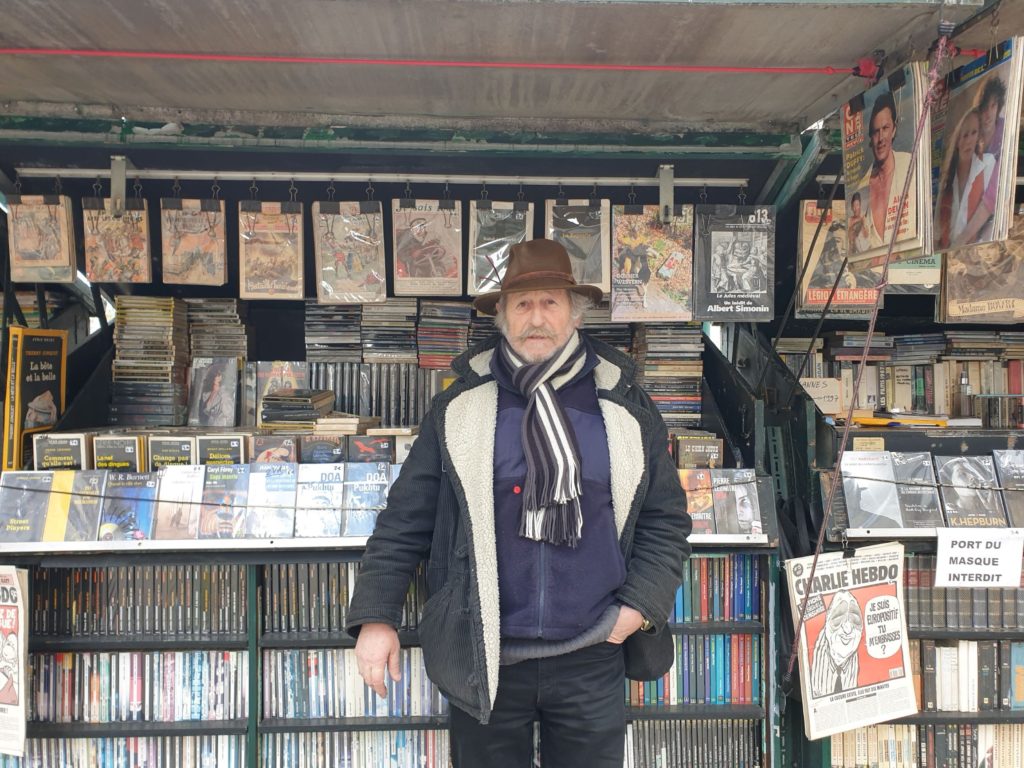
He’s a classic of the genre, engaging in long discussions with a longtime customer about the use of slang by two different authors and carefully selecting the best Fred Vargas crime fiction for a new reader. When the subject of two different mystery series came up, it was clear he’d read all the volumes in each.
Jacques says he’s glad Paris is devoid of tourists. Unlike many vendors, he sells no Eiffel Tower key chains, no Kylian Mbappé posters, no hokey imitation prints of, say, the Moulin Rouge. “They aren’t in the book tradition,” he says of those products. Gesturing at his neighbor five stalls down (all the ones in between were closed), he sneers at the wares displayed. “That’s not what we are all about.”
I checked with the seller in question, who did indeed offer piles of Paris buttons and little towers, plus soccer-player posters, along with record albums, magazines and plenty of books. He said he’s hardly profiting from his souvenir merchandise since there aren’t any tourists to buy the stuff. His sales are way down, he said, and he doesn’t know how much longer he can last.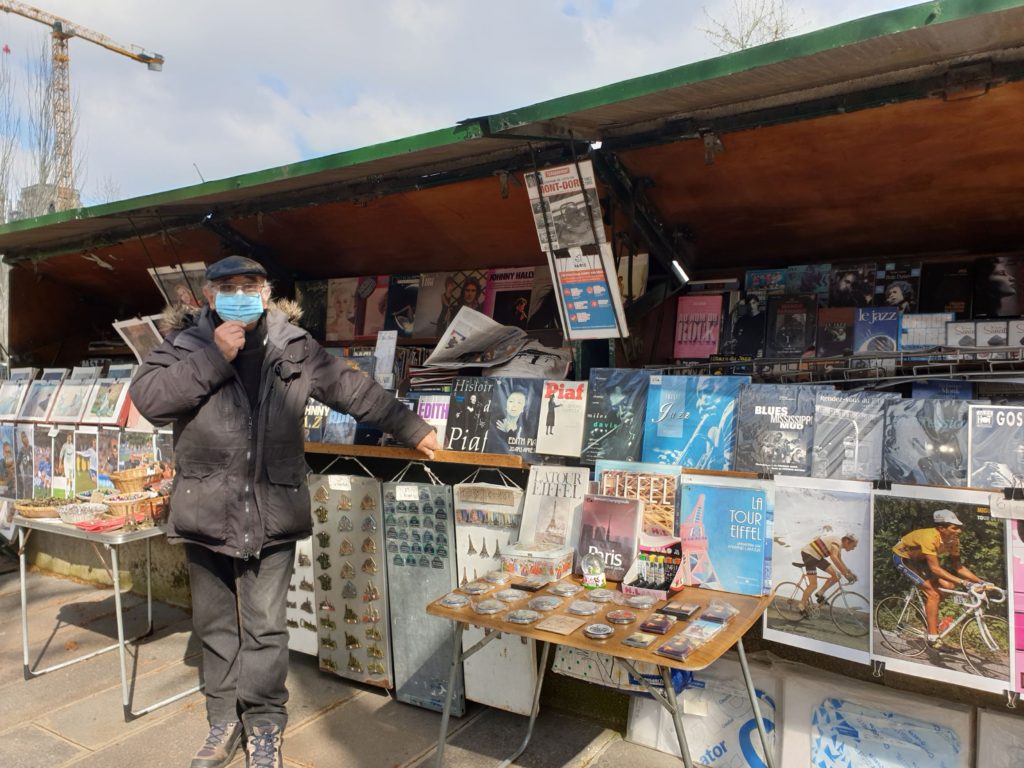
Many bouquinistes have specialties. One stall, for instance, sold only used “bandes dessineés.” They are comic books, but often hardback, and more entrenched in the French literary tradition than their American counterparts. Hergé’s The Adventures of Tintin series is a bande dessinée, for instance, as is the slightly less literary Astérix. My son Henry – and Henry’s father — used to devour those. The only non-BDs, the proprietor said, were posters related to the books. Adding items for tourists was not part of the plan.
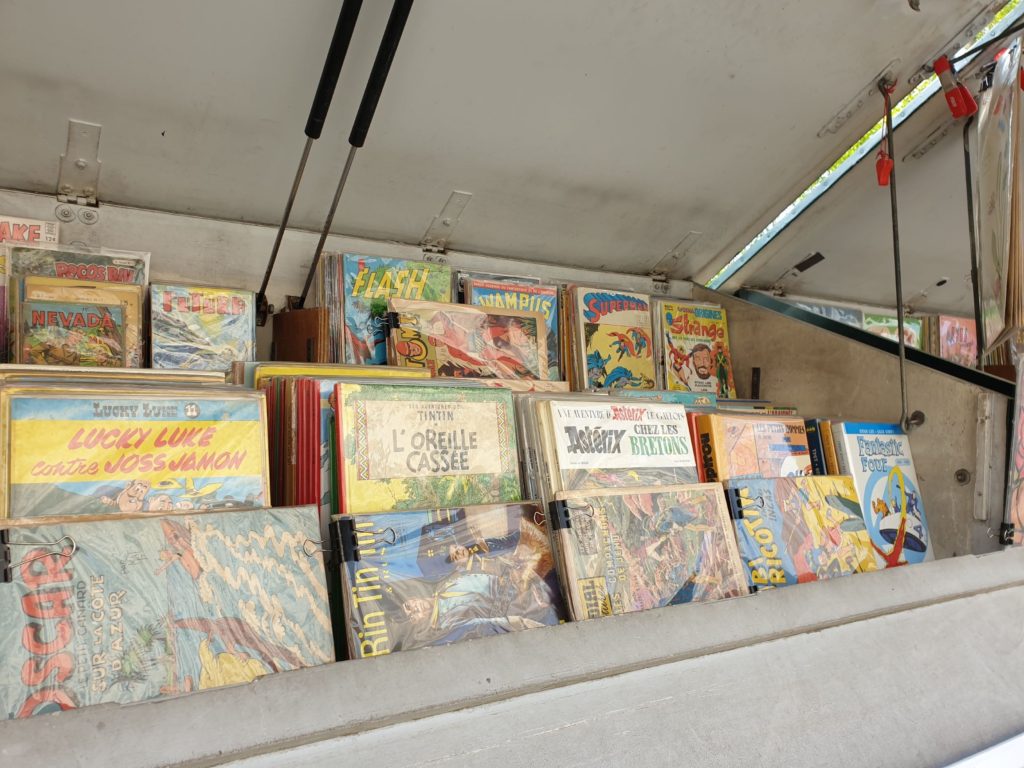
Bouquinistes are allowed to be open during Paris’s current anti-Covid regime, called “lockdown light,” because they sell books. That’s considered an essential business – along with hair salons, video-game stores, tabacs, florists, music stores, chocolate shops and every kind of food store you can imagine. Several regions, mostly in the north, are covered by these rules, as well as a 7 p.m. curfew and a ban on travel between regions.
President Emmanuel Macron has dithered over whether to impose stricter rules, the result of which is a surge in the number of new cases and a shortage of ICU beds, at least around Paris. That and France’s slow pace of vaccinations are making it less and less likely that tourists will be poking around the green stalls this summer.
Pierre (also a pseudonym) says that in fact he’s cutting back on his souvenir display and transitioning back to books, magazines and historical postcards, one of which he gave me for free because it was a little beat up.

When we talked, he was open for only the second day since October, and he said he was glad to be back. He also told me how much he loved the U.S. “Americans are so warm and friendly,” he said. He had heard of Ohio, my native state, and said he’d love to visit. Oh, he said, and come back soon. I’ll have some more postcards for you.
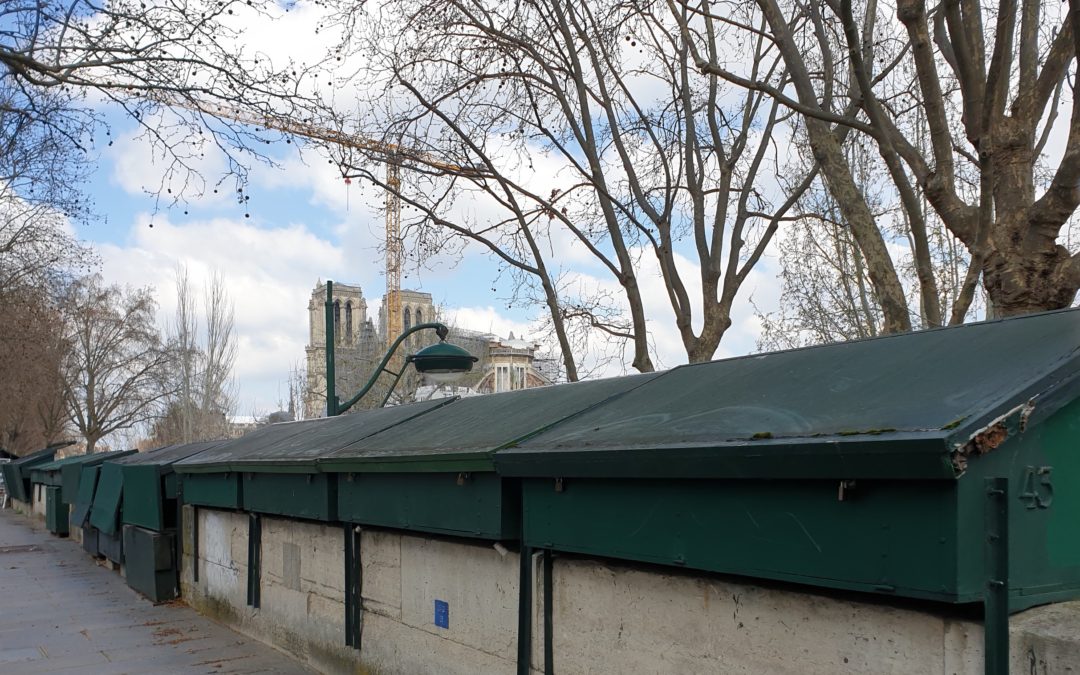
Nice to know you’re learning things about your city that you never knew about before the pandemic. Your blogs this past year have really given me the taste and smell of Paris. I think maybe the pandemic has given you the space to discover Paris in a new way that has really come through for me-I feel like I’ve been there with you. Thanks Anne. All the best.
Thank you, Pat! I never thought of it that way but I think you have a point. That makes me excited to go explore more of the city — when this all ends.
Michael and I love the book sellers. We don’t ever buy tourist stuff but have purchased several older well read books in English. Enjoy visiting them while they aren’t busy!
Very good point!